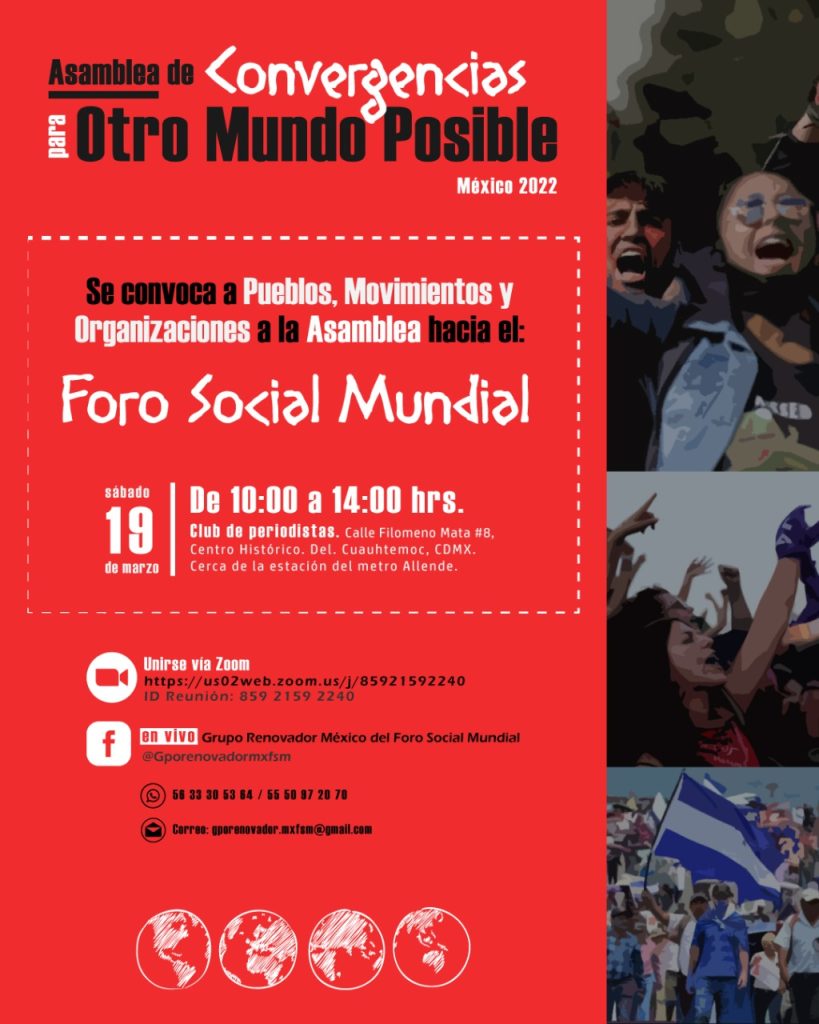Esp/Eng/Fra
FSM Propuesta de Alternativa:
CI / FSM: un impasse total
El CI está en un impasse: los de siempre, con los argumentos de siempre – menos sobre el punto del ‘consenso’ que sobre la posibilidad de ‘hablar’ en nombre del CI o del FSM -, no se mueven ni de un milímetro
Argumento principal: el punto nos divide – mejor no hablar de eso, o sea: ignorar lo que nos divide como si de esta manera el conflicto va a desaparecer
La solución que fue propuesta en la primera reunión del grupo ‘consenso’ fue rechazada:
siempre buscamos el consenso, si no está, si no viene de manera espontánea, podemos decidir con una mayoría supercualificada de 75, 80 o 85 %. Rechazo también de la posibilidad de verificar esta mayoría, ‘Framavox’ (sistema digital) solo sirve para ‘consultar’ a los que no están en una reunión, nunca se puede votar con un tal sistema. Osea, para el consenso siempre es consenso o unanimidad O una pequena minoría que ‘cede’ – aunque Chico quiere mantener el derecho para cada uno de oponerse (o sea unanimidad/derecho de veto).
Continuer la lecture